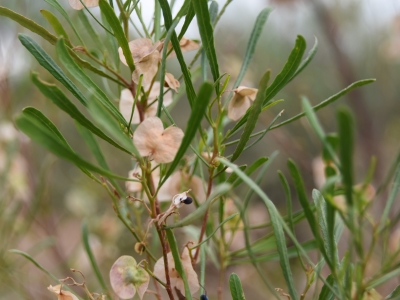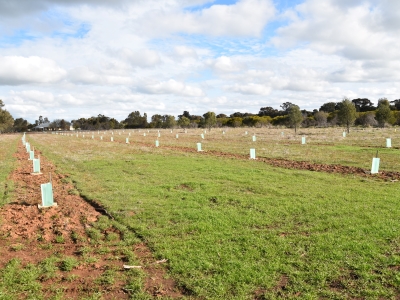Seed Production Areas help with Native Seed Harvest
NRM NEWS – MAY 2020 – TERRESTRIAL ECOSYSTEMS
By Sue Logie
Senior Land Services Officer P: 03 5881 9936 | M: 0427 352 117 | E: sue.logie@lls.nsw.gov.au

Each year over the summer months, the Seed Services team within Murray Local Land Services harvest and process seed for revegetation projects and local nurseries across our region.
Recent dry seasons and poor spring rainfall has resulted in limited seed set on many native plants, making the task of collecting seeds increasingly hard.
Fortunately, we have been able to access our Seed Production Areas which have provided up to 80% of the 240kg of seed harvested this year.
Seed Production Areas (SPAs) are sites designed to provide large quantities of genetically diverse, quality seed from a variety of species. SPAs were first established in our catchment twenty years ago. At this time it became apparent that native vegetation on roadsides and public lands could not supply the quantities of seed required for large scale direct seeding.
Direct seeding is a method of revegetation which sows seed directly into the ground with a purpose-built machine towed by a 4WD and uses approximately 1 kg of seed for every 1.5 ha planted.
SPAs are now our primary source of seed for all our revegetation projects.
Harvesting seed from SPAs has the following benefits:
- Remnant vegetation along roadsides and public land is left unharvested, allowing native wildlife (birds, ants & other insects) full access to the food resource
- SPAs attract native birds and animals and become on-farm hotspots for wildlife
SPAs, however, do need to be managed and maintained to keep them productive. The average productive life of shrub species planted in a SPA is between 10-12 years and this is excluding the 3-4 year it takes to establish before they become productive.
Over the past twenty years, we have improved the way we design and select species provenances (location origin) to enhance genetic diversity and resilience to climate change.
We currently have 12 active SPAs and several in the establishment phase in our catchment. We are hoping with good spring rains we can look forward to a bumper harvest this year.
